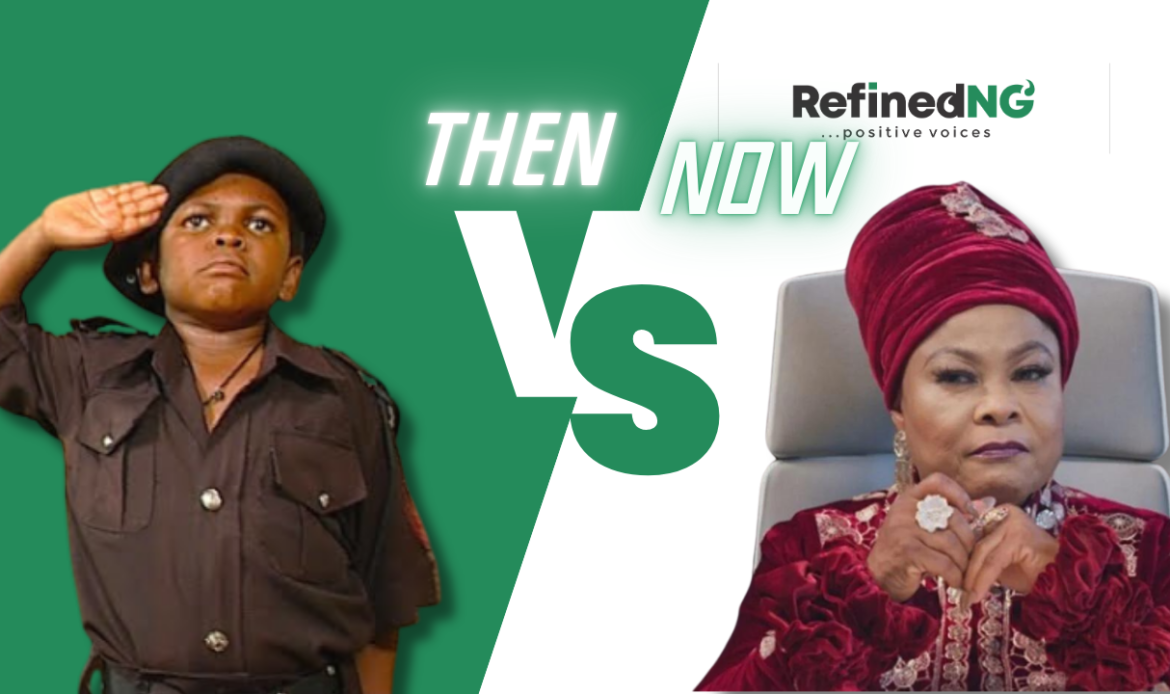
Nollywood, Nigeria’s vibrant film industry, has seen an incredible transformation over the past few decades. From the charming home videos of the 90s to today’s cinematic masterpieces available on streaming platforms like Netflix and Prime Video, Nollywood’s journey is a beautiful blend of nostalgia and innovation.
The Early Days: A Cinematic Spark
The story of Nigerian cinema begins during the colonial era, when films like “Palaver” (1926) and “Sanders of the River” (1935) first graced the screens, featuring Nigerian actors. Back then, movies were not just entertainment but also tools for spreading messages, especially by missionaries who used them for religious propaganda.
By the 1930s and 1940s, cinema had become a central part of life in bustling cities like Lagos. Big commercial theaters sprouted across Nigeria while traveling theater troupes entertained audiences with their plays. As technology advanced, these performances were recorded and shown in small picture houses, creating a rich tapestry of storytelling that captured the hearts of Nigerians.
Read: The Evolution of Nigerian Hairstyles: A Journey Through Time
With Nigeria’s independence in 1960, the film industry blossomed. It was the Golden Age of Nigerian cinema, although foreign films from America, India, and China soon dominated theaters. In response, the Nigerian government took steps to regain control, issuing the Indigenization Decree in 1972. This move brought theaters back under Nigerian ownership, spurring local filmmaking and adaptation of homegrown stories.
Read: Nostalgic Adverts from Our Childhood
The Birth of Nollywood: A 90s Sensation
The early 1990s marked the birth of Nollywood, a time when creativity flourished despite limited resources. Filmmakers started producing low-budget movies on video cassettes, capturing everyday life and resonating deeply with audiences. With their melodramatic plots and quick production schedules, these home videos became staples in Nigerian homes.
Kenneth Nnebue’s 1992 film, “Living in Bondage,” is often celebrated as the first actual Nollywood film. It was a game-changer, proving that local stories could be both popular and profitable. Filmmakers like Tunde Kelani also helped shape Nollywood’s identity with works such as “Saworoide” (1999).
Rising to Global Prominence: Nollywood Takes the Stage
As Nollywood grew, its stories began crossing borders, capturing the attention of audiences across Africa and the diaspora. The 2000s were a turning point, as the industry started gaining global recognition. The era of video films saw an explosion of creativity, with thousands of films released each year. However, challenges like piracy and distribution issues eventually led to a decline.
New Nollywood: The Dawn of a New Era
The 2000s brought a fresh wave of filmmakers who embraced higher production standards and complex storytelling. This “New Nollywood” era saw films like “The Figurine” (2009), “Ijé” (2010), and “The Wedding Party” (2016) break new ground with their sophisticated narratives and larger budgets.
Filmmakers like Kunle Afolayan and Genevieve Nnaji emerged as international stars. Afolayan’s “The Figurine” and Nnaji’s “Lionheart” (2018) showcased Nollywood’s enhanced production quality and creativity, with “Lionheart” even becoming Nigeria’s first submission for the Oscars’ Best International Feature Film category.
The Return of Cinemas: A Social Experience
The resurgence of cinemas in Nigeria played a crucial role in Nollywood’s evolution—the shift from home videos to cinema releases allowed for more ambitious projects and higher-quality productions. Going to the cinema became a social event, drawing people together to enjoy Nollywood films on the big screen.
Read: Thursday Throwback: Activities We Loved Growing Up in Nigeria
Digital Streaming: Nollywood Goes Global
In recent years, digital streaming platforms like Netflix and Prime Video have given Nollywood a global stage. Audiences worldwide can now access various Nigerian content, broadening Nollywood’s reach and facilitating international collaborations.
Netflix launched its African content platform in 2020, featuring Nollywood films like “Lionheart” and series like “King of Boys” by Kemi Adetiba. Other platforms, including IrokoTV and Amazon Prime Video, have also embraced Nollywood, making Nigerian films more accessible globally.
Reflecting on the Past: Old vs. New Nollywood
As Nollywood continues to evolve, there’s a fondness for the emotional stories of Old Nollywood, even as New Nollywood pushes boundaries with bold narratives and high production values.
From the cherished home videos of the 90s to the dynamic New Nollywood era of cinema and streaming, Nollywood’s journey is a testament to its resilience and creativity. As the industry looks toward the future, it remains a vibrant force in global cinema, continuing to tell stories that resonate with audiences across generations and cultures.
